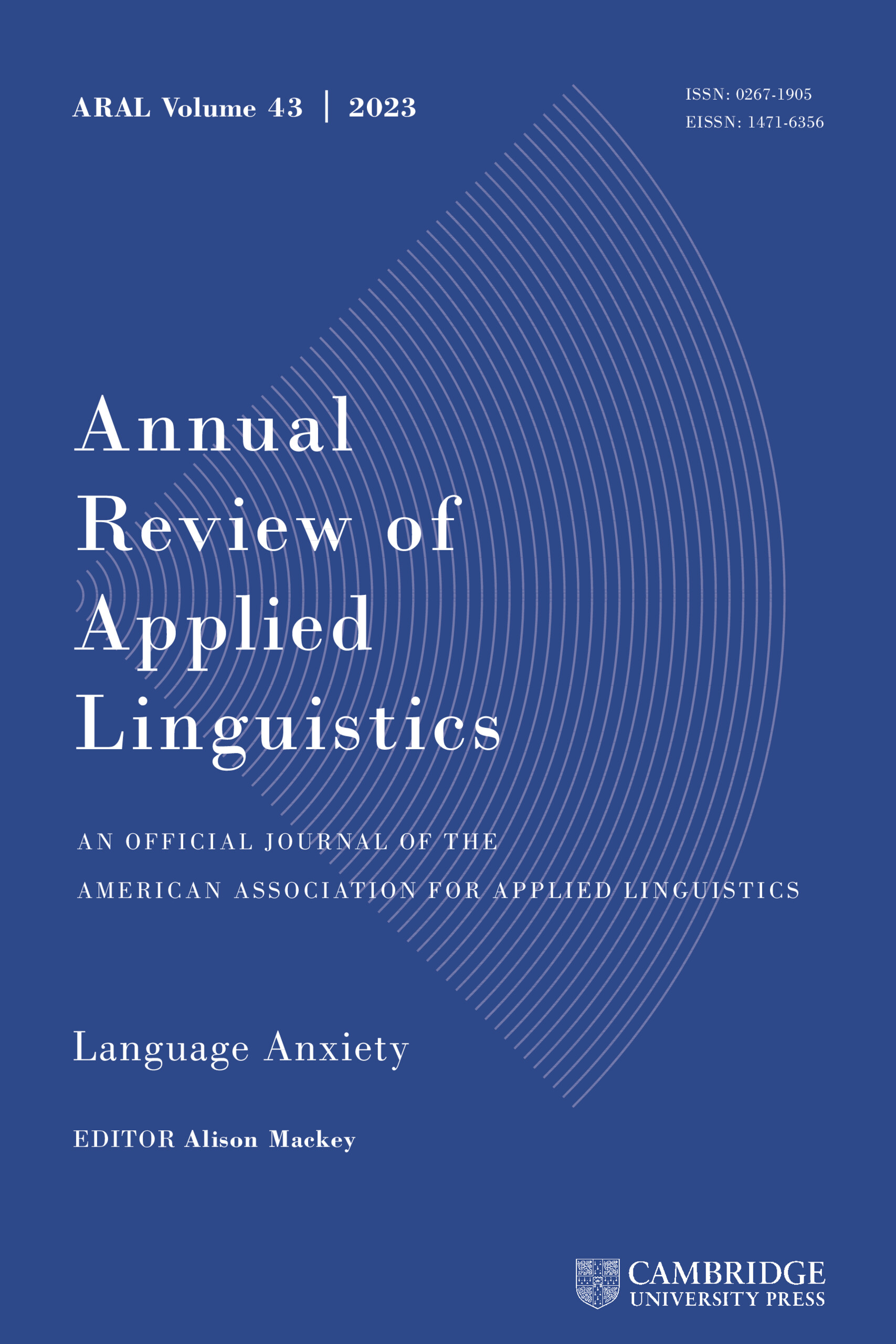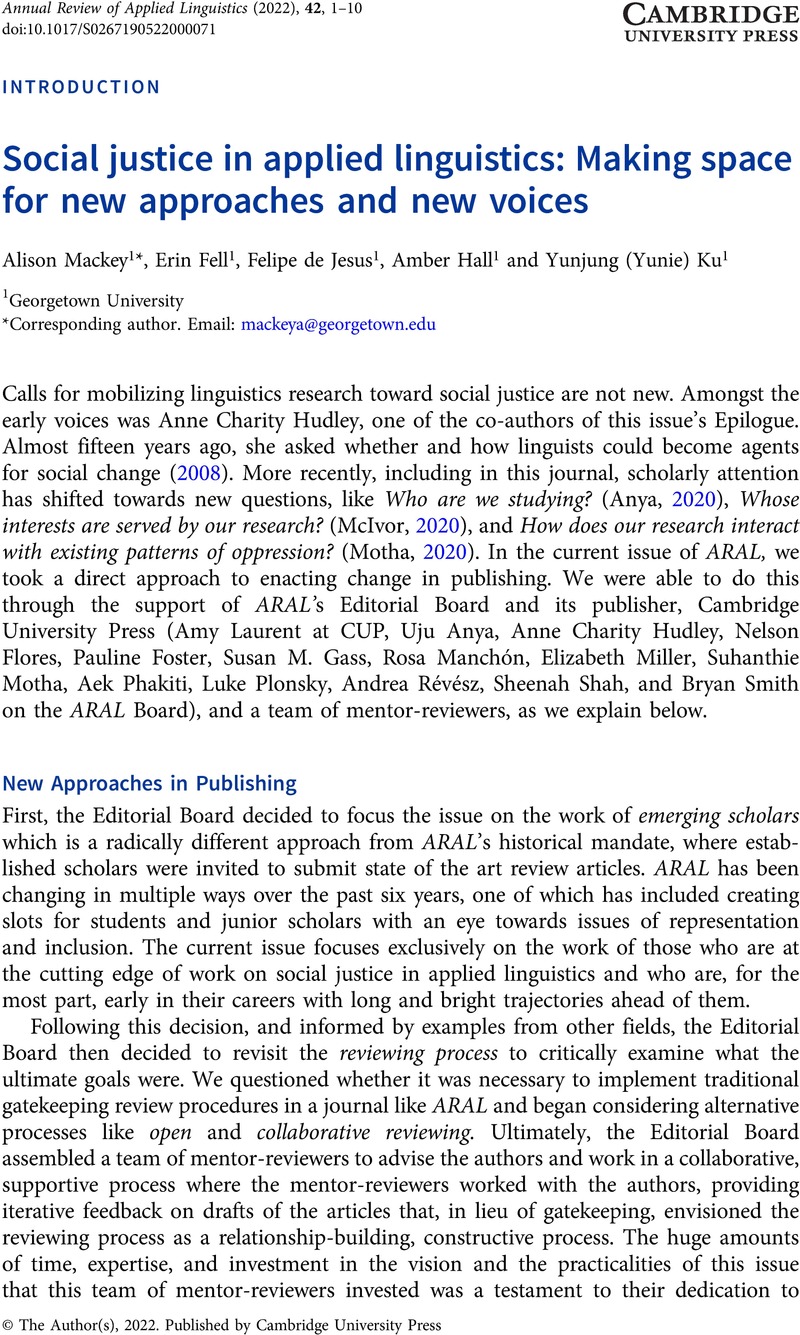Crossref Citations
This article has been cited by the following publications. This list is generated based on data provided by Crossref.
Van Viegen, Saskia
Chu Lau, Sunny Man
and
MingYue Gu, Michelle
2023.
20 years of critical inquiry in language studies.
Critical Inquiry in Language Studies,
Vol. 20,
Issue. 1,
p.
1.
Taylor-Adams, Allison
2023.
Relational applied research: A model for re-balancing research relationships for equity in applied linguistics.
Language Teaching,
Vol. 56,
Issue. 4,
p.
566.
Ortactepe Hart, Deniz
and
Aydınlı, Julie
2023.
Applied linguistics and language education research in Turkey: 2016–2022.
Language Teaching,
Vol. 56,
Issue. 4,
p.
495.
Brañez-Medina, Roberto Francisco
2024.
Desempaquetando la argumentación: tensiones identitarias y epistémicas en educación superior.
magis, Revista Internacional de Investigación en Educación,
Vol. 17,
Issue. ,
p.
1.
López-Gil, Karen
2024.
“Me sentía doble analfabeta”. Trayectorias letradas digitales de estudiantes indígenas.
magis, Revista Internacional de Investigación en Educación,
Vol. 17,
Issue. ,
p.
1.




